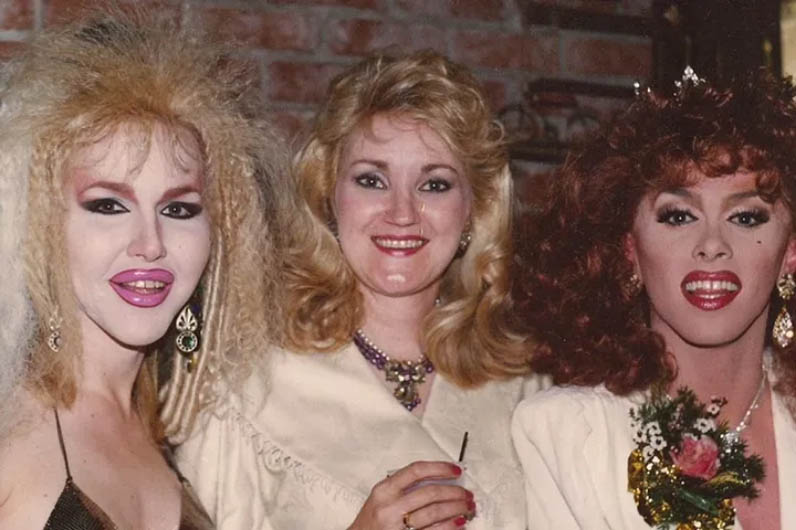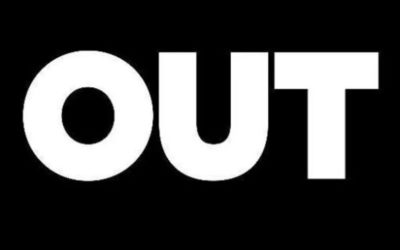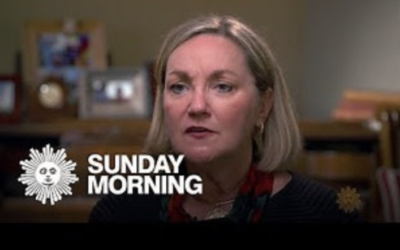How Ruth Became the Angel of America’s AIDS Crisis

The first time Ruth Coker-Burks saw an AIDS patient, he was near death.
Frail, sunken skin resting on hollow bones, the spark of life dwindling: his name was Jimmy.
All he wanted, in the world, was to speak to his mother. But she wouldn’t come.
Ruth Coker-Burks – the ‘cemetery angel’
Ruth was a 25-year-old young mother visiting University Hospital in Little Rock to help care for a friend with cancer. This was in 1984.
One day, she noticed a door telling her it was a quarantined room. She saw nurses would draw straws to check on the 100-pound man crying out inside.
She knew what it was, she had read about it. It was then known as GRID – gay-related immune deficiency.
A gay cousin in Hawaii had told her it was just the leather guys in San Francisco, but this was in Arkansas.
Ruth disregarded the warnings on the room, and said hello to the man dying on the hospital bed.
Meeting the first AIDS patient and his mother
‘I only knew him for about 13 or 14 hours,’ she tells Gay Star News.
‘When I met him, he was obviously near death. I went out to call his mother because that’s all in the world he wanted.
‘She wouldn’t come. She wouldn’t even talk to me.
‘I called her and said her son was very near death and wanted to see her before he died.
‘She said, “My son died years ago. I don’t know what you’ve got at the hospital but that’s not my son. Don’t call me back.”
‘So I called her back and said if she hung up on me again I told her I’d put her son’s obituary in the hometown newspaper and I’d list his cause of death.
‘I had her complete attention at that point.’
Pioneer in HIV and AIDS activism
From there, Ruth was a pioneer. Without any medical training, Ruth cared for dying gay and bi men abandoned by families.
She arranged appointments, picked up medication, and counseled them through their grief.
Often she would test friends herself and tell them the results. If they were positive, it was still considered a death sentence.
The AIDS advocate buried over three dozen of these men with her own two hands in the family’s private cemetery.
As an only child, she knew the grounds would never fill its 262 spaces. Across that decade, many of those spaces were used.
‘I did want to give him a proper burial because everyone deserves that,’ she says.
‘Everyone has the dignity of having their own space, saying, “look I was here too”.’
‘If you call this number she will help you…’
More patients kept coming. The hospital told these patients, ‘we don’t deal with you but if you call this number she will help you’.
Ruth dealt with hundreds of men.
‘They all stood out for me. They all did in their own ways,’ she says. ‘Some I don’t remember their names, but I remember their sweet faces.’
Church refused to help Ruth Coker-Burks
Ruth was very religious, but the Methodist church turned its back on her. They would throw away pens she touched and refuse to drink coffee she made.
‘They were horrible. It’s why I’m not religious anymore,’ she says.
‘There wasn’t a church that wanted me because I worked with AIDS patients. They didn’t want me.
‘I thought I was doing what God asked us to do, feed the hungry and take care of the sick and the poor.’
But Ruth doesn’t believe they were frightened of catching the disease, they just hated LGBTI people.
When the church failed her, she found a different kind of divine being to support her.
Getting help from drag queens
‘The first time I saw a drag queen, I thought I was in heaven,’ she says.
‘I thought, “this is the most fascinating thing I have ever seen in my life”. They’re so talented.’
Gay bars got organized and raised funds to support Ruth’s work. Many of the queens that first supported her later came to Ruth as patients.
One of these men was named Billy. He was in his early 20s, a drag queen.
His mother once called Ruth, demanding to know when he was going to die.
‘He’s holding up our lives,’ she said. ‘We don’t want people up here to know [he has AIDS]’.
By the time Billy died, he weighed just 55 pounds.
‘It’s a shame we let so many wonderful magnificent people die’
‘It’s a shame we let so many wonderful magnificent people die,’ she said.
‘Everyone that died of AIDS – so many of them were so talented. The world never got to witness to see how talented they really are.’
When the Center of Disease Control and the National Institute of Health finally decided to do something about HIV and AIDS, they sent people to Ruth as her patients were lasting two years longer than the national average.
‘The only thing they could figure out was that I loved them,’ she said.
‘The human touch was all it took to get them to live.’
In 2014, the Journal of American Medical Association, finally agreed with her.
Ronald Reagan ‘is to blame’ for AIDS crisis
This isn’t just about an sympathetic woman taking care of dying gay men when no one else would. This is about who is to blame.
‘We wouldn’t even have AIDS if it hadn’t been for Ronald Reagan,’ she said.
‘How could the President of the United States not know his constituents are dying of this horrible disease?
‘No one is his entire cabinet. They don’t even mention the word AIDS until years in his term?
‘And then they’re joking about it.’
And it’s true, you can you can still watch video of Reagan’s press secretary and chief of staff laughing about AIDS patients.
Ruth believes if they had treated the disease the same way they did tuberculosis, or the way the US government tackled ebola recently, thousands of lives could have been saved.
Is the US on the brink of another AIDS pandemic?
‘I am afraid that right now we’re at the beginning of an another AIDS pandemic in the United States,’ she said.
‘The way things are going, especially as they’re cutting out medication for HIV.
‘Vice President Pence, he’s from Indiana, and that state has the highest rate of HIV transmissions.’
This is why Ruth is campaigning for sex education in schools.
‘You’ve got a computer and you’ve got that little computer in your hand. You can learn yourself how to put a condom on, how to protect yourself,’ she says in a message to readers.
Importance of sex education
‘Keep your body healthy because it is yours and yours alone. Do the best you can and don’t get caught up in the heat of the moment.’
Ruth now lives a quiet life in Arkansas. She’s a grandmother and is often invited to give speeches at HIV awareness events.
In 2010, she had a stroke. A casual observer would assume she’s fully recovered although she tells us she still has some small issues.
It was thanks to her friends that she got through it.
Remembering them, she said: ‘They all had a unique story that would make any life better.
‘They were so kind and loving and gentle people that the world doesn’t have enough of.
‘We have to take care of people.’




